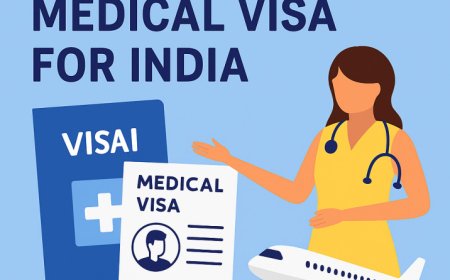Empowering the Modern Nurse: Competency-Based Learning and Leadership in Healthcare

In an era defined by rapid healthcare evolution, the role of the nurse has expanded dramatically. No longer confined to bedside care, todays nurses are administrators, educators, researchers, and change agents. To thrive in these roles, nurses must be proficient not only in clinical tasks but also in leadership, systems thinking, ethical reasoning, and cultural competence. Traditional education models, with their fixed schedules and lecture-based delivery, often fail to support the needs of working nurses or adult learners seeking career advancement. This is where FlexPath, a competency-based, self-paced learning format, offers a transformative alternative. Supported by resources such as flexpath assessments help, FlexPath enables students to succeed through personalized guidance while mastering real-world nursing competencies.
Why Competency-Based Education Is Reshaping Nursing
The challenges faced by modern nurses require flexible and adaptive learning models. The rigid semesters, timed tests, and static content found in conventional programs do not reflect the realities of clinical practice or the diverse backgrounds of adult learners. In contrast, FlexPath provides a framework where learning is driven by mastery, not by time spent in a classroom.
Students progress by completing assessments that demonstrate their knowledge and skills in areas like leadership, patient care coordination, ethics, communication, and healthcare improvement. This method allows learners to move quickly through familiar material or take additional time where needed. The result is a more engaged, confident, and practice-ready nurse.
What makes FlexPath especially effective is its real-world focus. Assignments simulate the challenges nurses face on the job, from designing team interventions to managing cultural barriers in patient care. Support from platforms like flexpath assessments help becomes crucial in this context. These services assist with assignment structure, academic formatting, and meeting complex rubric criteriamaking sure students stay on track with quality submissions and deeper understanding.
Leadership as a Core Competency in Nursing
As nurses take on increasingly collaborative and decision-making roles, leadership becomes an essential skill. Effective nurse leaders create healthier work environments, improve patient outcomes, and support interdisciplinary teams. However, leadership is not innateit must be taught, practiced, and refined.
FlexPath integrates leadership development at all stages, encouraging students to evaluate their styles, reflect on communication habits, and explore how leadership influences patient care. In nurs fpx 4055 assessment 1, students complete a thorough self-assessment of their leadership effectiveness and team collaboration. They are tasked with identifying communication gaps within nursing teams and proposing solutions to improve workflow and morale.
This assignment requires more than abstract theory. Students must examine their real or simulated workplace and evaluate how leadership dynamics affect collaboration and performance. By applying models like transformational or servant leadership, students explore how empathy, listening, and accountability enhance team functioning.
Ultimately, this kind of reflective practice fosters emotional intelligence and clarity. Students develop strategies that empower their colleagues, support their patients, and contribute to the development of healthier workplace cultures. Through assignments like this, FlexPath helps prepare nurses not just to lead teamsbut to inspire change.
Improving Systems and Patient Outcomes Through Strategic Planning
Nurses are uniquely positioned to identify problems in care delivery and lead quality improvement efforts. From inefficient workflows to poor patient handoffs, nurses encounter systemic issues every dayand they must be prepared to address them using evidence-based approaches.
This systems-oriented perspective is central to the FlexPath curriculum, which challenges students to act not only as caregivers but as strategists and innovators. One critical assessment that embodies this approach is nurs fpx 4905 assessment 4, which asks students to identify an organizational problem and develop a detailed plan to resolve it.
This task includes a comprehensive evaluation of a current issuesuch as communication breakdowns, medication errors, or workflow delaysfollowed by a strategy for improvement. Students must define key performance indicators (KPIs), engage relevant stakeholders, and design an implementation timeline.
Assignments like this bridge the gap between nursing theory and healthcare administration. They emphasize collaboration with interdisciplinary teams, stakeholder engagement, and sustainable change practices. Through such experiences, students build the leadership and analytical skills necessary to improve outcomes across their institutions.
What sets FlexPath apart is its insistence that students apply their plans to realistic situations. The results are not just academic exercisesthey're professional tools nurses can use to advance their own work environments. By preparing students to tackle real challenges, FlexPath strengthens nursings impact on healthcare delivery.
Ethics, Culture, and the Heart of Patient-Centered Care
Great nursing care is grounded in respectfor the patients needs, values, and context. In todays multicultural and multi-faith world, nurses must deliver care that honors diversity while maintaining the highest ethical standards. Cultural competence and ethical reasoning are therefore not just optional topicsthey are pillars of quality care.
FlexPath helps students build these critical skills by requiring assignments that challenge them to plan and coordinate care that respects patients beliefs, identities, and social backgrounds. A central example of this is nurs fpx 4035 assessment 2, which focuses on coordinating patient-centered care within a culturally and ethically diverse context.
In this assignment, students are asked to develop a care coordination plan for a specific patient scenario. This includes assessing the cultural factors influencing the patients healthcare experience and recommending communication and coordination strategies that foster trust and support. Ethical concernssuch as autonomy, confidentiality, and informed consentare also addressed within the plan.
This assessment trains students to avoid assumptions, confront implicit bias, and become advocates for underserved populations. They learn how to support not just physical healing but dignity, inclusion, and respect. The resulting care plans are holistic, person-centered, and grounded in professional ethics.
These lessons are immediately applicable in todays healthcare landscape, where nurses encounter patients from a wide array of backgrounds. By emphasizing cultural responsiveness and ethics, FlexPath prepares students to serve all patients with empathy and equity.
Conclusion
The nursing profession is constantly evolving, and so too must the educational pathways that prepare nurses for the future. FlexPath offers a powerful alternative to traditional models by placing learners at the center of the educational experience. Through personalized, competency-based learning, students gain mastery in areas such as leadership, systems thinking, ethics, and cultural competence.



































